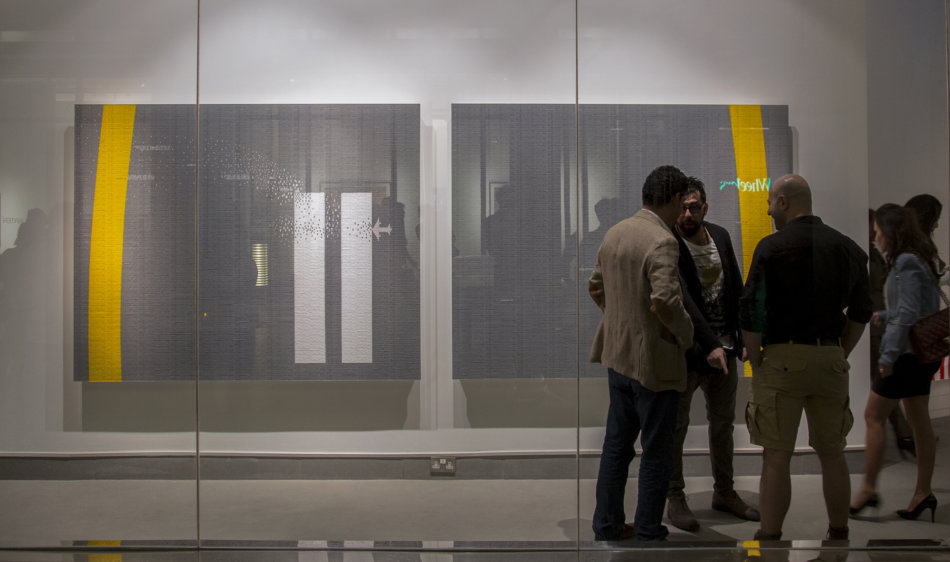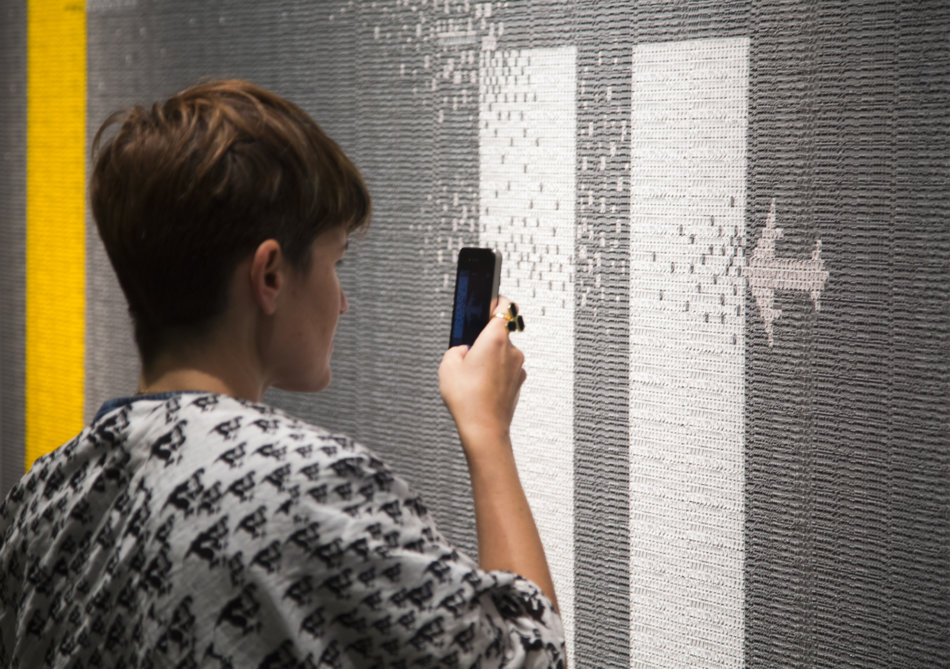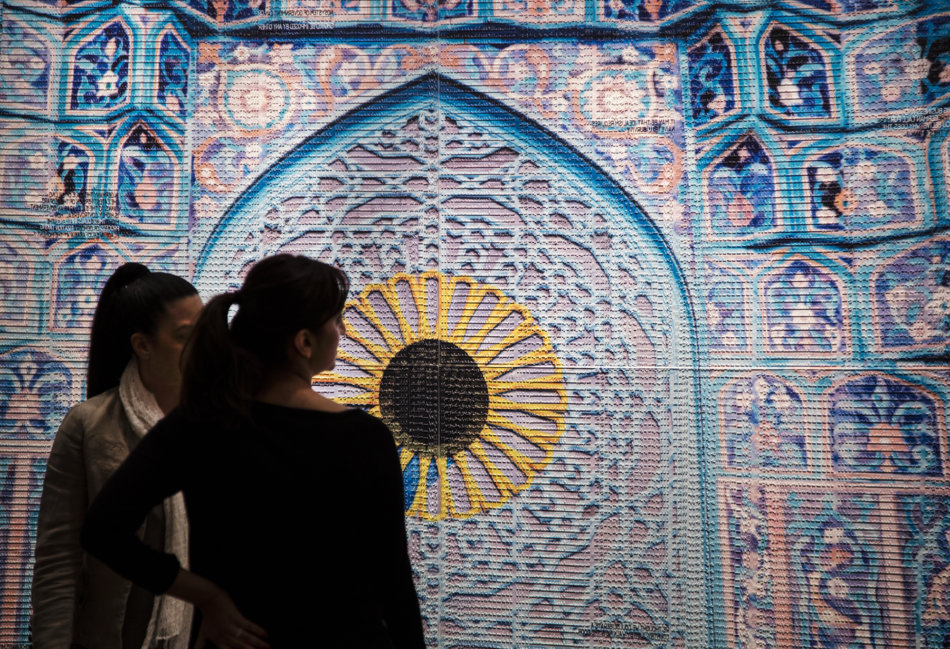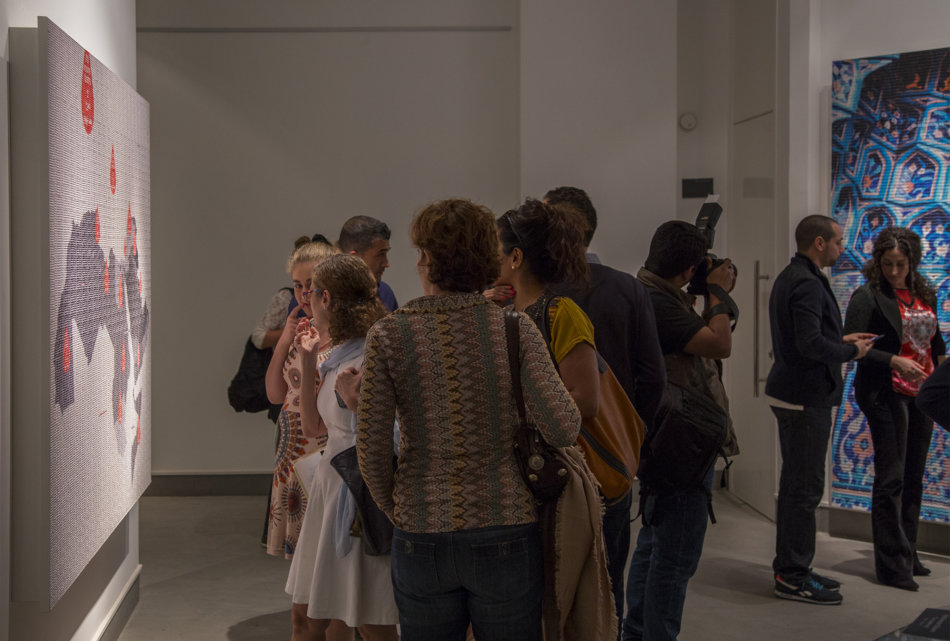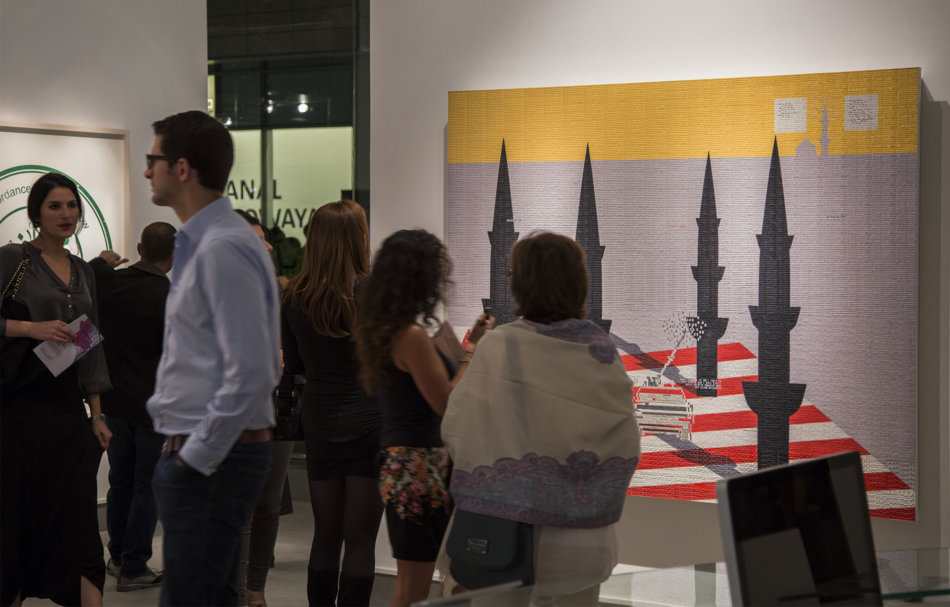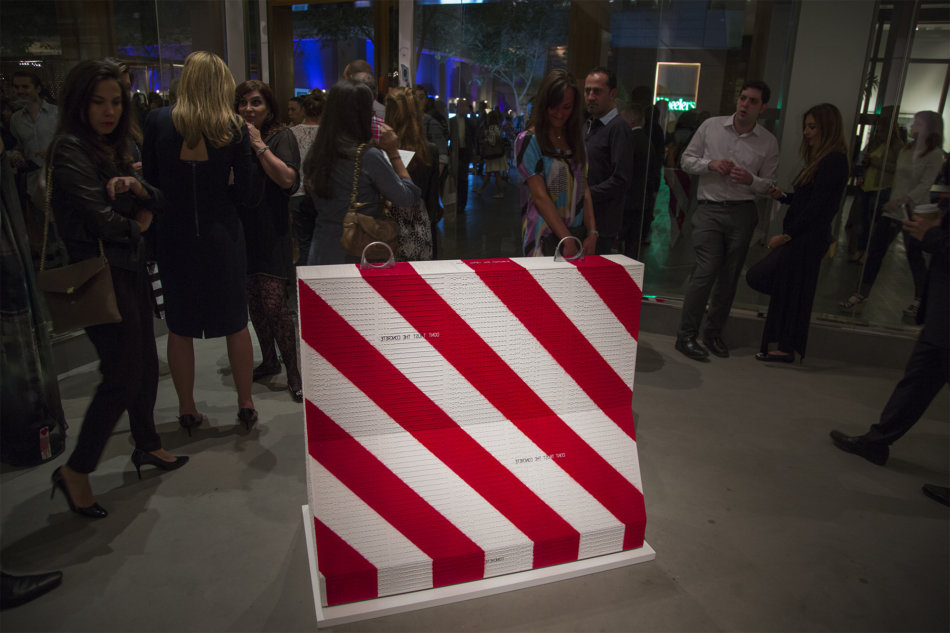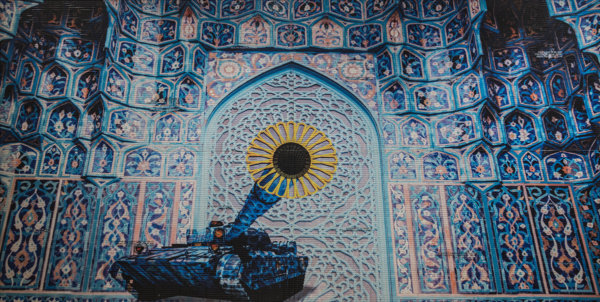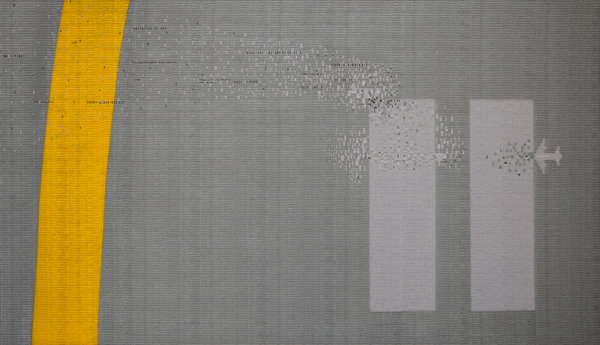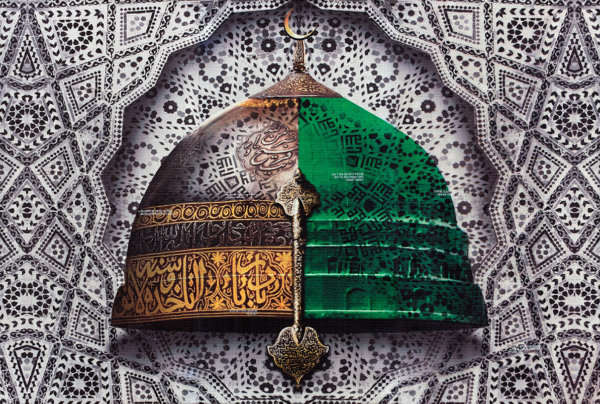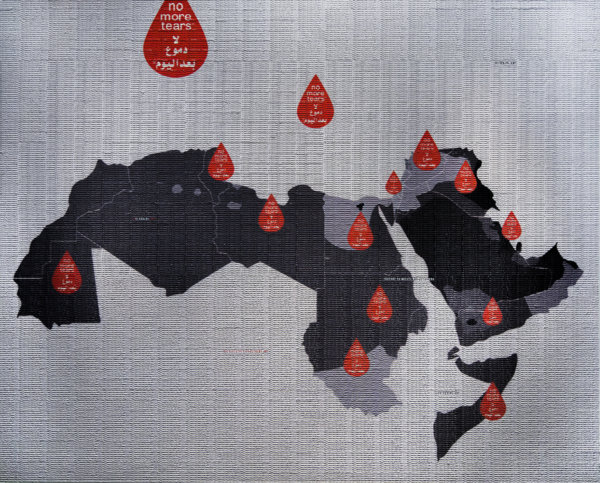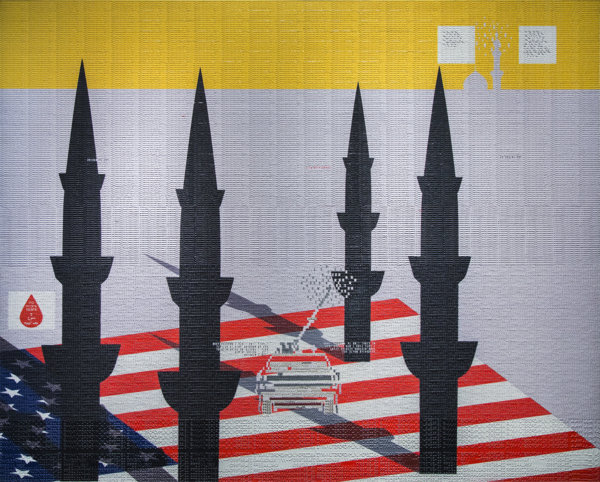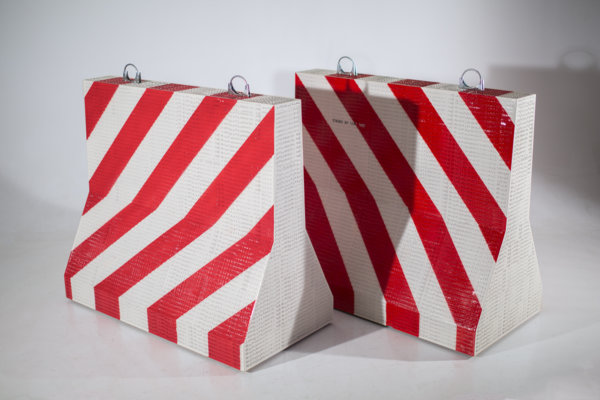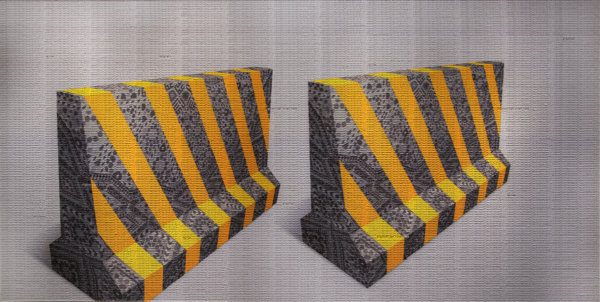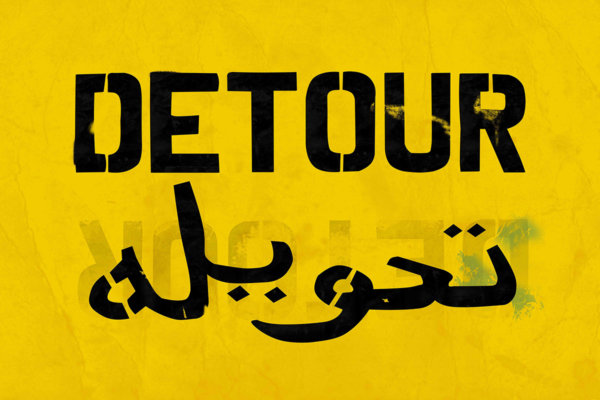Ayyam Gallery, Dubai (DIFC)
17 Mar to 30 Apr, 2014
Ayyam Gallery DIFC, Dubai is pleased to announce Al Sahwa (The Awakening), a solo exhibition by conceptual artist, Abdulnasser Gharem, to be held March 17 - 30 April, 2014. This is Gharem’s first solo exhibition in the Gulf since 2010, and in it the artist looks to symbols, images and events related to the recent history of the Islamic world, in order to formulate possible visions of a harmonious future for the Muslim nation. In the exhibition the artist presents new large-scale stamp paintings alongside silkscreens from Men at Work and The Stamp series.
The title of the exhibition refers to the “Al Sahwa” movement of the late 1970s and early 1980s that gained great traction in public and university life both in the Kingdom of Saudi Arabia and across the Middle East. Gharem himself was only in primary school when the “Al Sahwa” began to form within the school setting. At first, participation in the group was an extra-curricular activity but later “it began to shape the identity and growth of the students” to the point that Gharem felt the movement aimed at changing his “spiritual genes,” thus turning him into “an unintended victim.”
Gharem recounts terrifying moments from that impressionable time in his childhood—a change in dress code came into effect, girls were forbidden from attending school and television sets were thrown out of windows. The focus of the movement was a restrictive version of Islam as deemed appropriate by the “Sahwiin” and it promoted confrontation with anyone who disagreed with said beliefs, including Shi’aas and Sufis.
In a creative re-imagining years later, Gharem proposes a new kind of awakening for the contemporary Middle East. This awakening must be facilitated via creativity, dialogue, exchange of knowledge, discourse on art and education and an attitude of tolerance. In his own words the artist says, I am “hoping to launch a request for the restoration of the real Islam, which believes in pluralism and diversity, and together is committed against extremism.
Seminal to the show, Hemisphere and Camouflage are two of the largest stamp paintings the artist has made to date. In Hemisphere an ancient warrior’s helmet is coupled with a green dome of a mosque. The colour green depicts the grandeur of the Muslim world and the faith that stands for peace but has recently been co-opted by elements inimical to a truly Islamic environment. The dome and crescent in the piece also allude to the artist’s previous highly acclaimed installation, Message/Messenger from 2010.
As someone who has been interested not only in bringing the past to the forefront but also in bringing unofficial history to spotlight, the 2007 piece, The Path once again serves as a reminder of those who unfairly perished at the Tihama Valley bridge. The Moujaz stamp brings to consciousness bureaucratic processes of an Islamic state while prints from the Men at Work series combine images of conquest along with images of public works and maintenance.
Having addressed a variety of difficult issues in his art, Gharem’s output becomes increasingly ambitious with each successive show. In this vein Al Sahwa asks audiences to think very seriously about interfaith conflict as it increasingly and dangerously gains credence across the Middle East.
